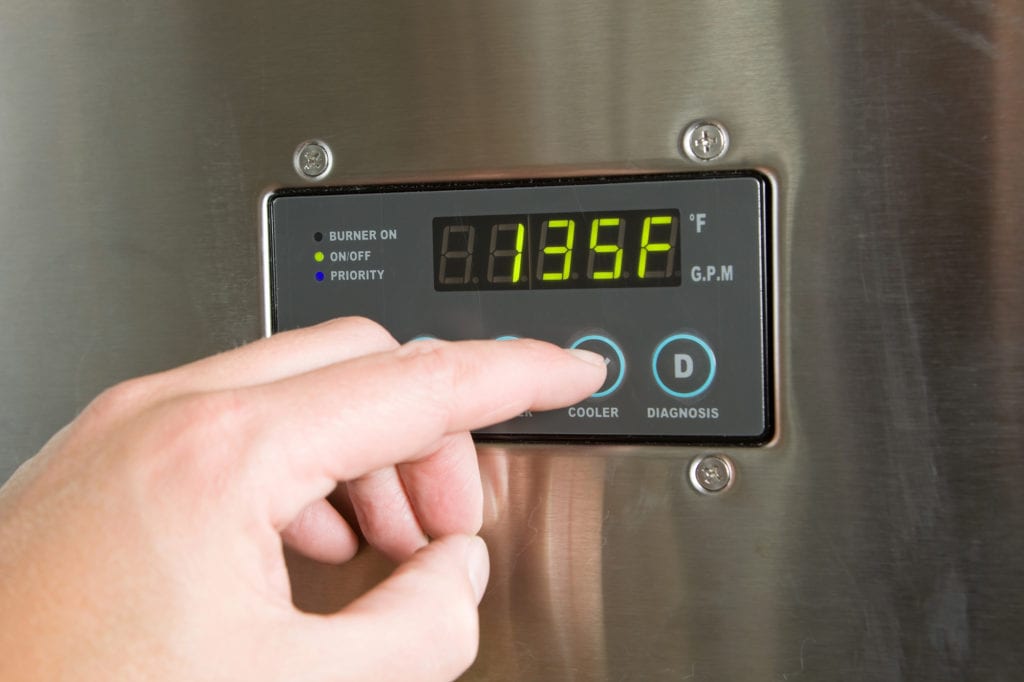Are you buying a new water heater?
Always make sure you know what you are getting before you decide to buy one. After all, a water heater is an essential home appliance, and you want a reliable one that suits your needs. If you are not familiar with the buying process, you are at the right place.
Let’s discuss the different types of water heaters, their sizes, power sources, long-term costs and other factors that will help you make an informed decision.
Always remember to hire the best, most experienced plumbers possible to install any water heaters because it is a long-term investment and you only want professionals to handle it.
Types of Water Heaters
Water heaters can approximately amount to a fifth of a home’s entire energy consumption, and this is no small matter. Which is why you need to be careful with the type of water heater you decide to buy. Here are the different types.
Point-of-Use Water Heaters
Point-of-use water heaters, or POUs for short, are a mini version of water heaters, which makes them an excellent option as a secondary hot water source. You cannot use these as your primary hot water source because they simply cannot handle the hot water needs of even the smallest households.
You can, however, use them under your sinks to get more hot water to wash dishes or fulfill other kitchen needs. Since they are so close to the delivery point, they supply hot water instantly and without losing or dissipating heat through longer pipe journeys, making them highly efficient.
Pros
- Efficient energy use
- Compact size
- Hot water on demand
- Fairly inexpensive
Cons
- Only suitable as a secondary hot water source
- Only suitable for a single delivery point
Since these water heaters are not suitable to support entire households, we will not discuss them any further in our buying-a-water-heater guide.
Tank Water Heaters
These are your typical water heaters that come with a large cylindrical storage tank that keeps the water warm inside. In most markets, these are the least expensive options, but you will pay more in energy bills because, unlike tankless water heaters, these use energy almost constantly.
If you opt for one of these, the tank size matters depending on your usage. An easy way to determine the size that suits your needs is to opt for a tank that holds ten gallons of water per person in your household.
Pros
- Inexpensive to purchase and install
Cons
- Inefficient energy use
- Large size
- High long-term costs due to frequent energy consumption
Tankless Water Heaters
These are the most popular option these days when buying a water heater and there are some strong reasons behind it, including:
- Efficiency
- Compact size
- Consistent hot water
- Long-term savings
While these are all good reasons to opt for a tankless water heater, there are also some downsides. The biggest of these is that they are relatively more expensive. You will pay anywhere around a thousand dollars for an electric model that covers a whole house to around 3,000 dollars for a gas-powered one.
Naturally, price depends on the size of your home as well. Moreover, if you have multiple members of your household using hot water, a smaller tankless water heater may not be able to provide ample hot water to everyone.
Some people may opt for multiple tankless water heaters in a bigger house for this reason. These water heaters are popular mainly because of the efficiency of an electric variant and their ability to provide consistent hot water on demand.
While they may cost more to purchase and install, once fitted, they more than make up for their higher price with the energy costs they save you over time.
Pros
- Efficient energy use
- Compact size
- Consistent hot water on demand
- Lower long-term costs of energy consumption
Cons
- Expensive to purchase and install
- Smaller variants not suitable for multiple users at once
Fuel/Power Source
The fuel or power source of your water heater can make a big difference on its efficiency in energy consumption and long-term costs.
- Electric Water Heaters
Electric water heaters are available in both, tankless and tank options and can also be used as a secondary power source for solar water heaters. Electric heaters are the most popular choice with homeowners and individuals buying a water heater.
They can be very efficient in energy consumption but the more efficient they are, the more they cost to purchase.
These premium prices are offset by their long-term savings on energy bills. However, electric water heaters also have some of the shortest lifespans of any water heater. Moreover, they may lose some of their efficiency over time. These things are all important to consider when buying a water heater.
- Gas Water Heater
Gas water heaters are the second most popular option. These can cost more than their electric counterparts because there are more components involved in installation but they are typically more efficient as well. This brings their running costs lower.
The drawback is one similar to electric variants that the purchase price of a gas water heater will go higher, the more energy efficient they become. Gas water heaters of the tank type are arguably the best value you can get out of a water heater.
- Solar Water Heaters
Solar water heaters as a primary water heating source depends a lot on your location. They make sense in places where there is ample sunlight, even during winters. They also require a secondary fuel/power source if you want hot water at night or on overcast and cloudy days.
The only real advantage of solar water heaters is that when there is ample sunlight, the running and long-term costs are practically non-existent. Although, it is important to note that their purchase and installation costs are the highest among water heaters.
Conclusion
Buying a water heater depends a lot on your usage, number of household members, location and individual preferences and needs. Hopefully by now you better understand how to go about purchasing the right water heater that best suits your needs.
One thing to remember is that if you are replacing an older water heater and switching its type or fuel/power source, there will be extra costs for the conversion. Our best recommendation is to use a combination of tank and tankless water heaters.
This will give you multiple sources of hot water and, if possible, use different fuel/power sources for each so that you can depend on one if the other is down for whatever reason. Just remember to hire the best people for the job when installing your precious investment.
If you need further help buying a new water heater, installing it or replacing an old one, we highly recommend Top of the Line Plumbing in Jacksonville, Florida, for the best, friendliest and most professional plumbers in the state.





